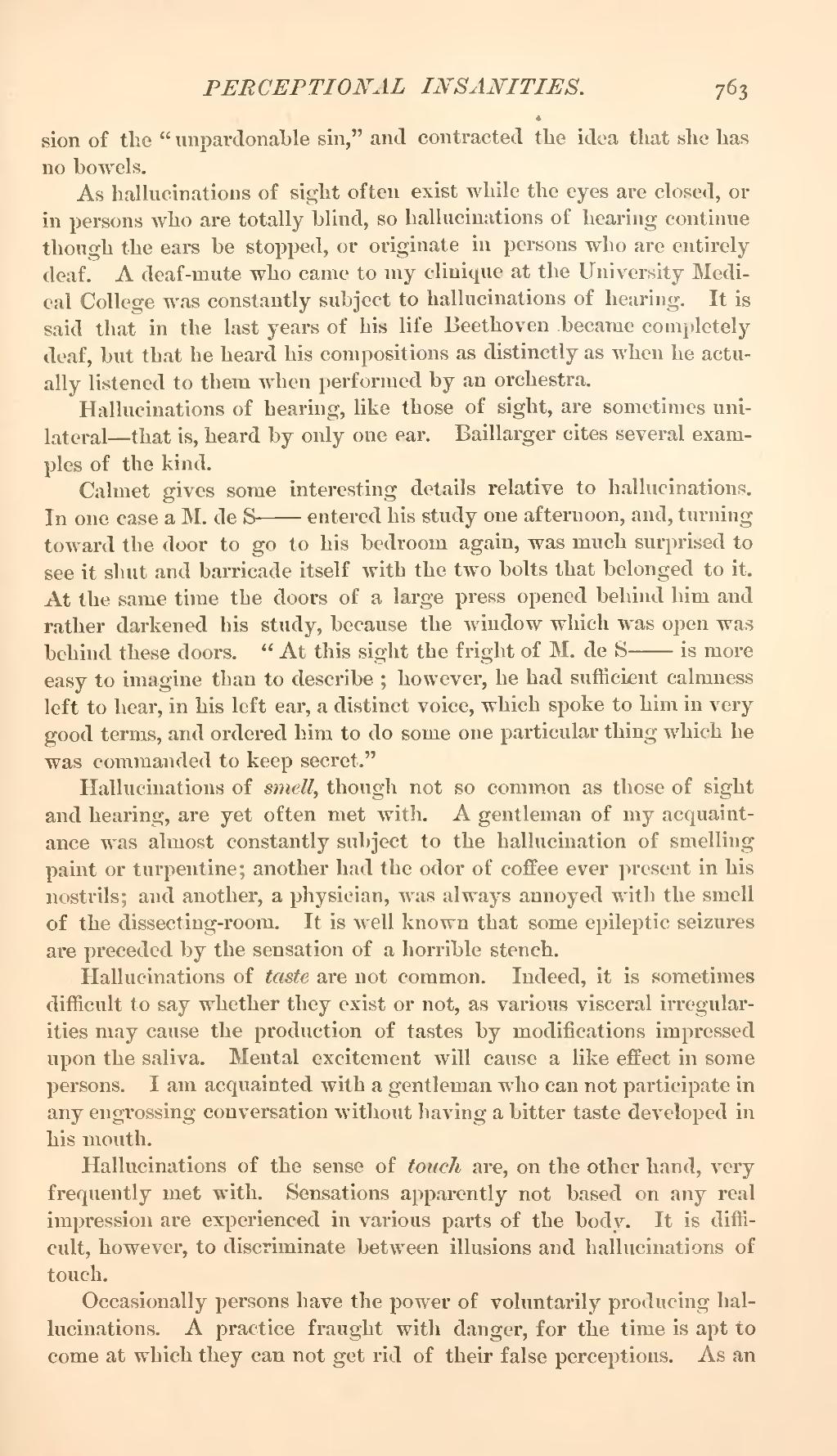sion of the "unpardonable sin," and contracted the idea that she has no bowels.
As hallucinations of sight often exist while the eyes are closed, or in persons who are totally blind, so hallucinations of hearing continue though the ears be stopped, or originate in persons who are entirely deaf. A deaf-mute who came to my clinique at the University Medical College was constantly subject to hallucinations of hearing. It is said that in the last years of his life Beethoven became completely deaf, but that he heard his compositions as distinctly as when he actually listened to them when performed by an orchestra.
Hallucinations of hearing, like those of sight, are sometimes unilateral—that is, heard by only one ear. Baillarger cites several examples of the kind.
Calmet gives some interesting details relative to hallucinations. In one case a M. de S entered his study one afternoon, and, turning toward the door to go to his bedroom again, was much surprised to see it shut and barricade itself with the two bolts that belonged to it. At the same time the doors of a large press opened behind him and rather darkened his study, because the window which was open was behind these doors. "At this sight the fright of M. de S is more easy to imagine than to describe; however, he had sufficient calmness left to hear, in his left ear, a distinct voice, which spoke to him in very good terms, and ordered him to do some one particular thing which he was commanded to keep secret."
Hallucinations of smell, though not so common as those of sight and hearing, are yet often met with. A gentleman of my acquaintance was almost constantly subject to the hallucination of smelling paint or turpentine; another had the odor of coffee ever present in his nostrils; and another, a physician, was always annoyed with the smell of the dissecting-room. It is well known that some epileptic seizures are preceded by the sensation of a horrible stench.
Hallucinations of taste are not common. Indeed, it is sometimes difficult to say whether they exist or not, as various visceral irregularities may cause the production of tastes by modifications impressed upon the saliva. Mental excitement will cause a like effect in some persons. I am acquainted with a gentleman who can not participate in any engrossing conversation without having a bitter taste developed in his mouth.
Hallucinations of the sense of touch are, on the other hand, very frequently met with. Sensations apparently not based on any real impression are experienced in various parts of the body. It is difficult, however, to discriminate between illusions and hallucinations of touch.
Occasionally persons have the power of voluntarily producing hallucinations. A practice fraught with danger, for the time is apt to come at which they can not get rid of their false perceptions. As an

